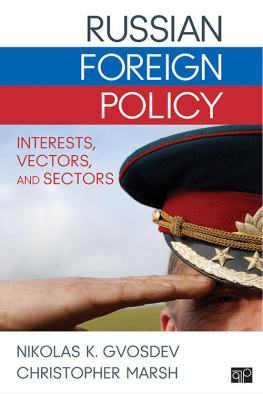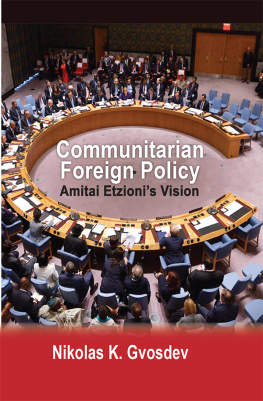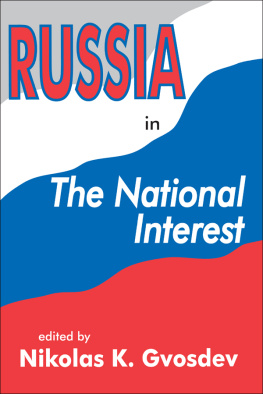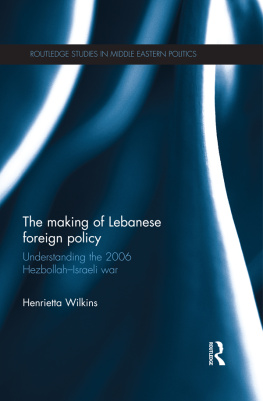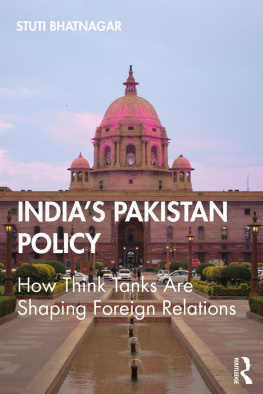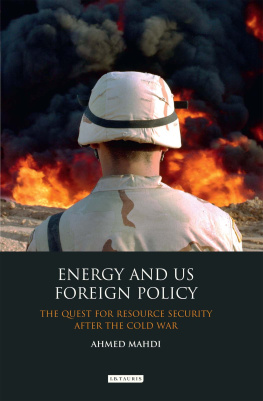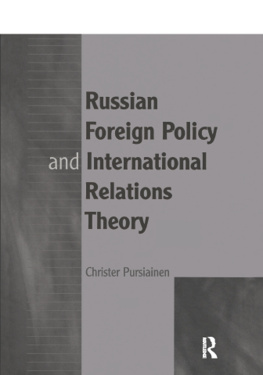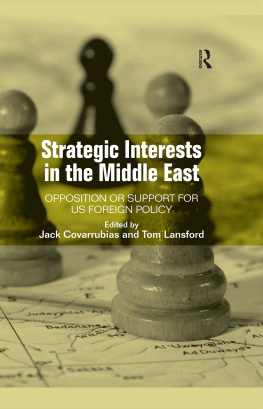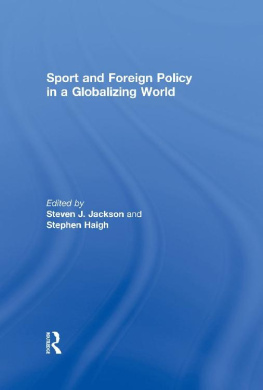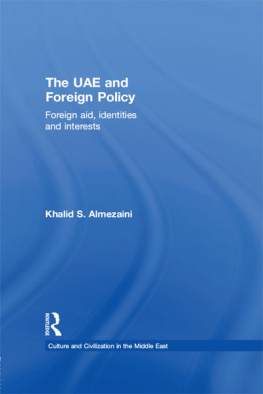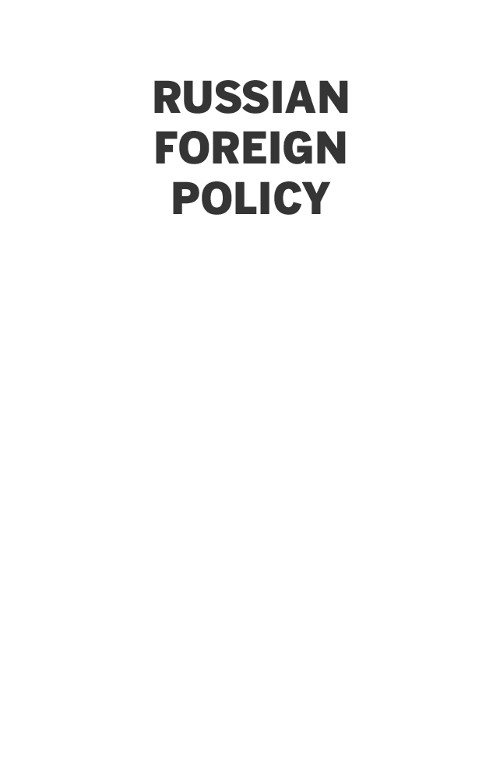
CQ Press, an imprint of SAGE, is the leading publisher of books, periodicals, and electronic products on American government and international affairs. CQ Press consistently ranks among the top commercial publishers in terms of quality, as evidenced by the numerous awards its products have won over the years. CQ Press owes its existence to Nelson Poynter, former publisher of the St. Petersburg Times, and his wife Henrietta, with whom he founded Congressional Quarterly in 1945. Poynter established CQ with the mission of promoting democracy through education and in 1975 founded the Modern Media Institute, renamed The Poynter Institute for Media Studies after his death. The Poynter Institute ( www.poynter.org ) is a nonprofit organization dedicated to training journalists and media leaders.
In 2008, CQ Press was acquired by SAGE, a leading international publisher of journals, books, and electronic media for academic, educational, and professional markets. Since 1965, SAGE has helped inform and educate a global community of scholars, practitioners, researchers, and students spanning a wide range of subject areas, including business, humanities, social sciences, and science, technology, and medicine. A privately owned corporation, SAGE has offices in Los Angeles, London, New Delhi, and Singapore, in addition to the Washington DC office of CQ Press.

Copyright 2014 by CQ Press, an Imprint of SAGE Publications, Inc. CQ Press is a registered trademark of Congressional Quarterly Inc.
All rights reserved. No part of this book may be reproduced or utilized in any form or by any means, electronic or mechanical, including photocopying, recording, or by any information storage and retrieval system, without permission in writing from the publisher.
The opinions expressed herein are those of the authors themselves and do not represent the official position or necessarily reflect the opinion of the U.S. Government, the U.S. Army, the U.S. Navy, Department of Defense, or any other organization with which the authors may be affiliated.
Printed in the United States of America
Library of Congress Cataloging-in-Publication Data
Gvosdev, Nikolas K., 1969
Russian foreign policy : interests, vectors, and sectors / Nikolas K. Gvosdev, Christopher Marsh.
pages cm
Includes bibliographical references and index.
ISBN 978-1-4522-3484-7 (alk. paper)
1. Russia (Federation)Foreign relations21st century. I. Marsh, Christopher, 1969- II. Title.
JZ1616.G86 2014
324.47009051dc23 2013020368
This book is printed on acid-free paper.
13 14 15 16 17 10 9 8 7 6 5 4 3 2 1

FOR INFORMATION:
CQ Press
An Imprint of SAGE Publications, Inc.
2455 Teller Road
Thousand Oaks, California 91320
E-mail:
SAGE Publications Ltd.
1 Olivers Yard
55 City Road
London EC1Y 1SP
United Kingdom
SAGE Publications India Pvt. Ltd.
B 1/I 1 Mohan Cooperative Industrial Area
Mathura Road, New Delhi 110 044
India
SAGE Publications Asia-Pacific Pte. Ltd.
3 Church Street
#1004 Samsung Hub
Singapore 049483
Acquisitions Editor: Charisse Kiino
Associate Editor: Nancy Loh
Editorial Assistant: Lauren Johnson
Marketing Manager: Erica DeLuca
Permissions Editor: Jennifer Barron
Project Editor: Veronica Stapleton Hooper
Copy Editor: Kim Husband
Typesetter: C&M Digitals (P) Ltd.
Proofreader: Dennis W. Webb
Indexer: Kathleen Paparchontis
Cover Designer: Karine Hovsepian
CONTENTS
LIST OF TABLES, FIGURES, AND MAP
TABLES
FIGURES
MAP
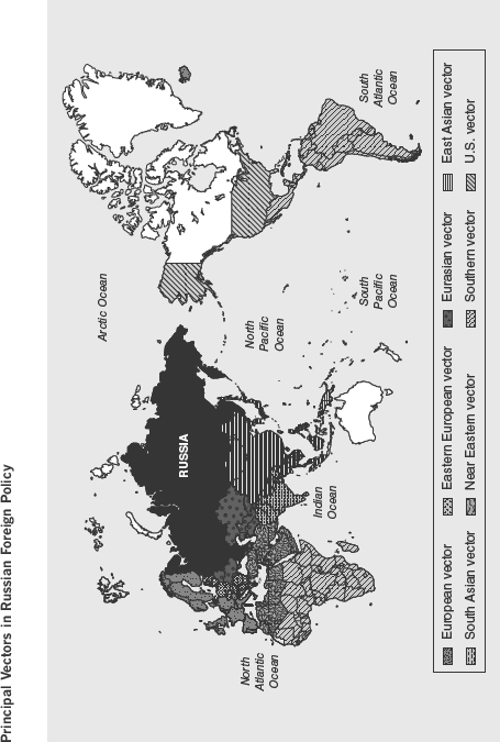
PREFACE
O n April 12, 2012, in his last address to the State Duma as Russias prime minister, Vladimir Putin declared, The postSoviet period is over.
It is in a similar vein that we wrote this book as a study of Russian foreign policy, not Russias postSoviet foreign policy. While it is undeniable that the legacy bequeathed by the USSR continues to have a powerful influence on contemporary Russia, Russian foreign policy today is not a continuation of Soviet policy. For one, the main problems that faced Soviet leadersespecially the ideological rivalry with the West and Chinaare no longer the ones that concern the Russian foreign policy establishment. Secondly, Moscow must deal with its former imperial possessions and Soviet siblings as independent states with their own foreign policy interests and strategies (which are often at odds with those of the Kremlin). Thirdly, and by no means finally, the contemporary international political, economic, and security environment is drastically different from that of the Soviet eraso much so, in fact, that even if the Soviet Union still existed, a contemporary Soviet foreign policy would scarcely resemble its predecessor in any way.
The Soviet Union itself has been relegated to the rubbish heap of history, but the dead hand of the Soviet past continues to exert an unhelpful influence over the way in which current Russian actions on the world stage are interpreted and understood. Even the casual slips of the tongue by many U.S. politicians and policymakers, who mistakenly refer to the Soviet Union instead of Russia, reflect the inability of some to escape the cognitive frame of the Cold War, or at least the temptation to want to define the present by the past. To continue to do so will result in missed opportunities at best or dangerous strategic miscalculations at worst. In writing this book, it is our hope that we can contribute in some way to the debate over the sources and conduct of Russian foreign policy that is placed within its proper historical context, one that recognizes the influence of the Soviet era while not ascribing every action taken by Moscow as having roots in that time period.
One way we seek to do this is by disaggregating Russian foreign policy into actors and avenues of approach, what we call the sectors and vectors of Russian foreign policy. During the Soviet period, outside analysts often interpreted Soviet actions through the lens of Communist ideology. Again, the Soviet period is over, and Communist ideology itself has no influence whatsoever on Russian strategic thinking. Russia today is a new entity, still significantly influenced by the actions of the Soviet regime but not tied to the ideology that directed its actions. To understand its foreign policy behavior more clearly, we must see Russia for what it is: a multinational state that has reemerged from the ashes of the USSR and is seeking to find its proper place in the international system. It is now more useful to examine the interests and preferences of different sectors of Russian society, each with its own ideas as to which vectors best accommodate their needs. How sectors and vectors intersect and are mediated through the policy process is the rationale behind this book.
NOTE
.
ACKNOWLEDGMENTS
Nikolas Gvosdev would like to thank his colleagues at the U.S. Naval War College (especially those in the Europe-Russia Study Group) for their insights and support, beginning with the Provost, Ambassador Mary Ann Peters, and the chair of the National Security Affairs department, Dr. David Cooper, as well as Professors Tom Fedyszyn and Tom Nichols. He would like to thank
Next page
